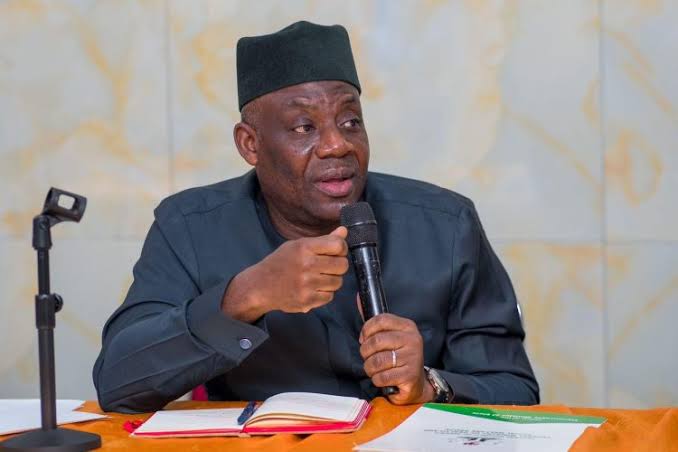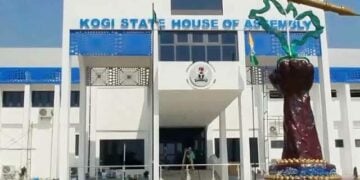A group, Growth & Development of Northern Nigeria (GDNN), has urged the federal government to re-evaluate the seven-year moratorium on establishing new federal universities, polytechnics and colleges of education so that good cases do not become victims of others’ failures.
At a quarterly briefing in Abuja yesterday, the acting secretary (Public Policy Advocacy Unit) of the GDNN, Haruna Buhari, said licensed institutions that fail to meet the set standards should be the ones to be held accountable.
According to him, the decision is unnecessary as it will not serve the intended purpose but rather deny access to even more serious investors in the sector while the ones for whose inability the decision was designed remain as they are.
Buhari kicked against what he described as an unacceptable practice in the aviation sector by operators who migrated from a reasonable “change of travel time or date” fee to an extortion in which
economy tickets of initial purchase price of about N130,000.00 on a one-way leg attracts as high as N70,000.00 addition.
He called on the federal government to scrap AMCON, saying it is an institution that is not only a liability to the financial sector of the economy but a major “drainpipe and conduit” for corruption and escalating cost of doing business in Nigeria.
“Statistical records available to the GDNN reveal that AMCON levies imposed on Banks annually ranges between N80.00B to N50.00B per each senior financial Institution in the industry, on the average, and using it to support absolutely nothing but wasteful expenditures,” Buhari said.
He asked the governors of the 19 northern states, including the FCT minister, to explore syndicating a single facility aimed at developing the Regional Railway Network that would connect the entire region to Abuja in the long run and immediately rehabilitate and put back to use the existing rail system to enhance the economic and industrial competitiveness of the North and all states in between.
“The GDNN invites the attention of the following wealthy Northern Nigerians to the unfortunate plight of stray children roaming the streets and sleeping under bridges, in-garages, markets, anywhere, etc and urge them to team up with us (GDNN) to design a solution to the challenges the societal failure has imposed on these unlucky children so that we can work jointly with other similar concerned associations or organisations to transform them into useful citizens of our society.
“It is now very clear that allowing foreign “NGO’s” to be the only players is risky as they are indeed facilitating the deterioration than assisting. We must remove them completely from it. We call on Gen. T Y Danjuma, Alh. Aliko Dangote, Alh. AbdulSamad Isiaka Rabiu, Alh. Dahiru Mangal and Alh. Muhammadu Indimi, just to mention a few, and to humbly request each of them to delegate one person to work with us in designing a sustainable solution to the unfortunate situation these young boys have found themselves including young girls in drugs consumption misfortune so that their lives can be improved through an effective rehabilitation and engagement programme.
“The GDNN further calls, once again, on all the governors of the North, as a reminder, to collectively syndicate a single loan facility that enables them as collective stakeholders interested in the Economic Growth and Development of the North to team up with the Federal Government in, not only ensuring the completion of the A-K-K Gas Pipeline Project (Ajaokuta-Abuja-Kano) as they will all be beneficiaries of the Industrial Development Facilitation resulting from the gas delivery.
“The GDNN is similarly, as another reminder, calling on all the state governors of the North to make an effort at syndicating another Common facility to Invest in Digital Transformation Planning (DTP) to enable them jointly intra-network the entire North digitally and technologically, and to harvest the benefits technology now delivers to countries that have no other resources than Human Resources Developed to support their economies using the Digital Technology.
“On the energy supply side deficiency, the GDNN notes that Electricity supply hovering between 4,000 – 5,000 MW for a population of more than 200 million Nigerians is grossly inadequate as it works out to an average annual electricity consumption per capita of about 152-190 kWh while the average figure for sub-Saharan Africa is about 500 kWh and that of the world is about 3,000 kWh.
“…The GDNN advises that significant improvement in electricity supply can be realized by expansion of the energy mix, not just with the gas and hydro power plants that are the two being relied upon, but to also include Solar, Wind, Biomass/Biofuel, Nuclear and Clean Coal Power Plants to approach 30,000 MW by 2030 and 100,000 MW by 2050 insha Allah.
“This can be achieved with the recent enactment of Electricity Act 2023 which has empowered the States to create their electricity market by setting up State-Specific Electricity Regulatory Commissions to guide electricity generation, transmission and distribution through state-wide grids.
“GDNN further calls on Governments of the Northern States to take advantage of this opportunity and set up their electricity markets as quickly as possible. If any State in the north has any difficulty on how to, the GDNN can be of assistance in that regard. This is because of the imminent decentralization of the National Grid which is the way out of its incessant collapse.
“The GDNN, again, call on all governments of the north to initiate action at rejuvenating Ministries of Forestry that’s targeted at encouraging interested citizens all over the North to embark on planting at least 500 – 1,000 seedlings of Economic trees as contribution to the Forestry Development Programme and as a sustainable means to additional annual income that can interface with the various state’s agriculture and environmental management projects,” Buhari added.











